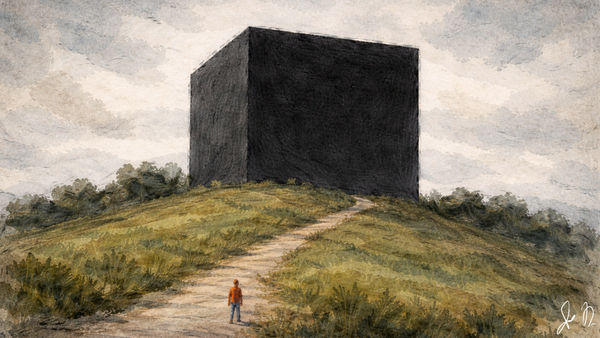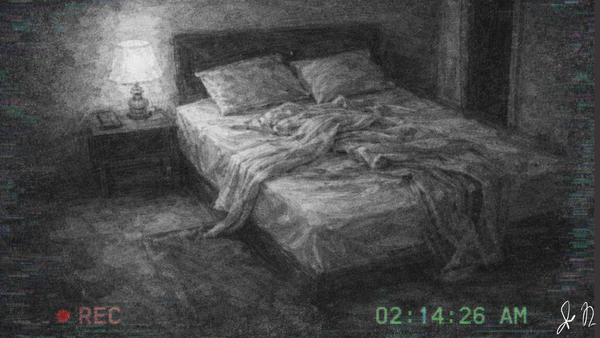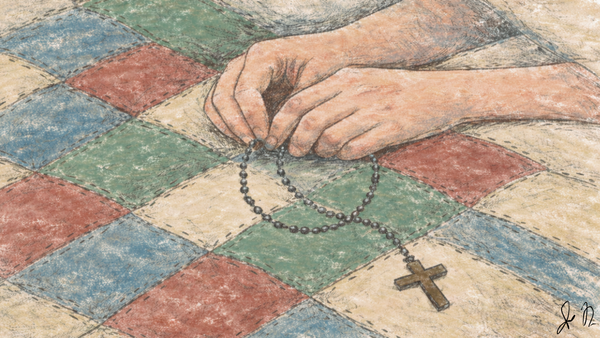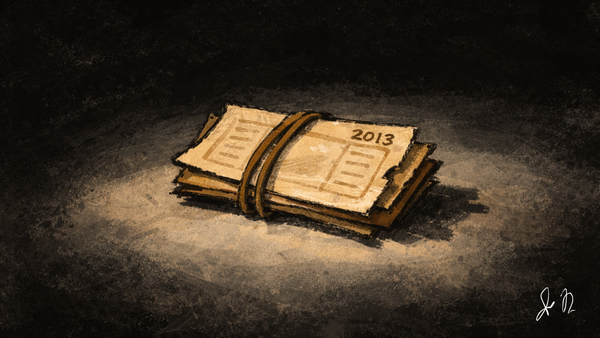The Moon Dancer’s Bargain
When the Sea demands everything, one Woman stands alone.
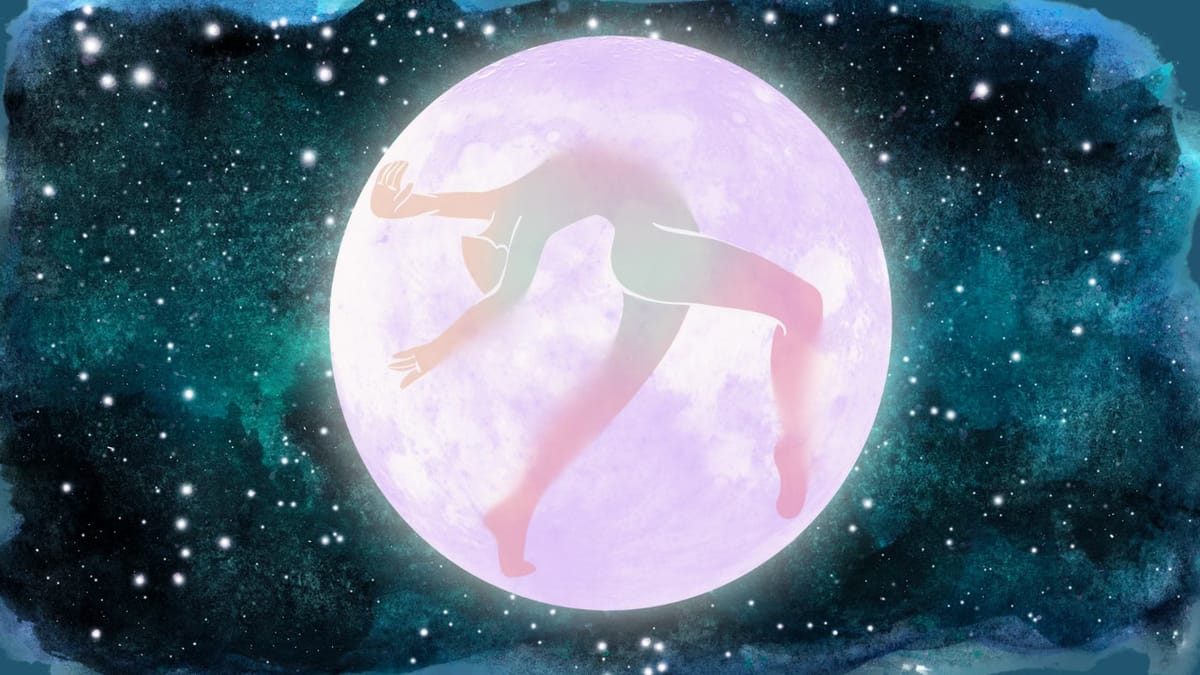
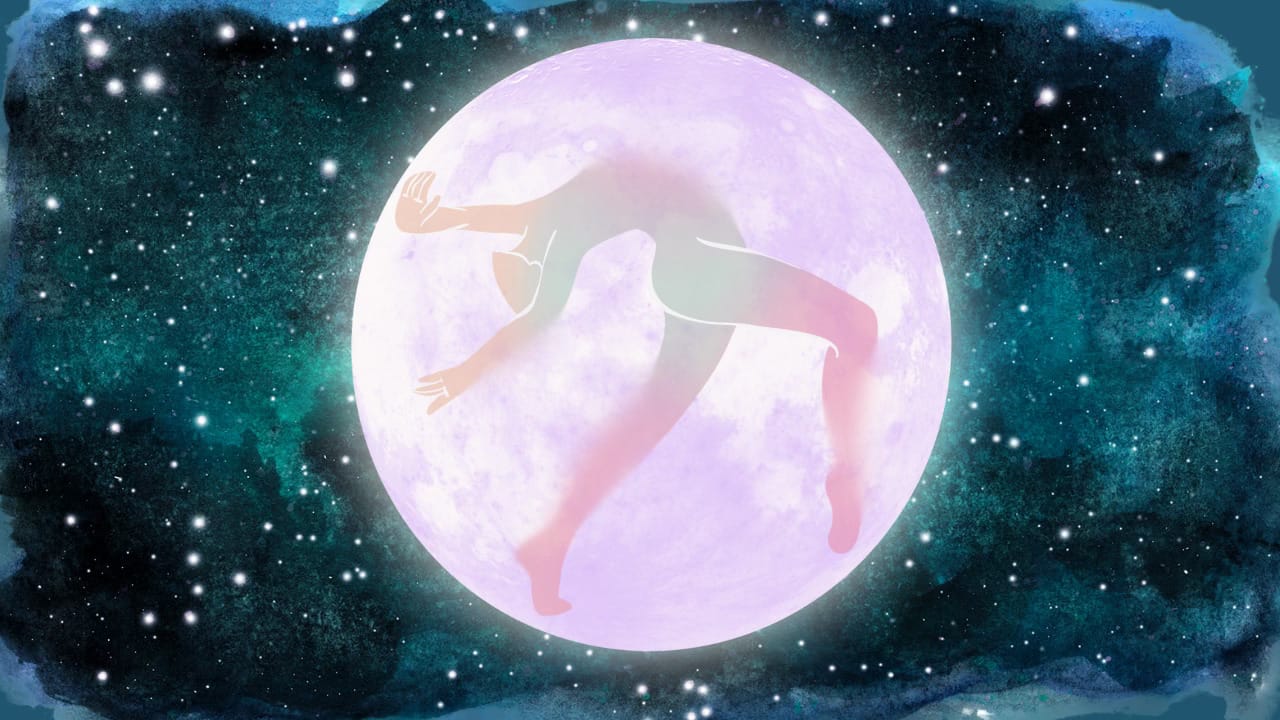
Long before the sea forgot its song, Anakaona walked the shore where painted waves never failed to greet her. Ana’s feet pressed shapes into the wet sand—circles, lines, zigzags—marks no tide could steal fast enough.
“Ana, Ana,” the wind would hum in spirit, tugging at her braids, twisting salt into her skin.
She ignored it. The wind spoke often, usually nonsense, but tonight even the gusts lacked feeling. They were far too eager and loud. And cloying.
Behind her, the village crouched in the moonlight, a cluster of straw-roofed homes huddled like children clinging to one another. Smoke escaped a single chimney; someone boiling cassava no doubt. Everyone else had gone to sleep early, as if they believed darkness would make them invisible to the thing beyond the reef. The Moon Dancer.
Ana had no patience for hiding. She would never let herself be invisible.
Her sister whispered earlier—tears staining her face, fear in every breath—that the elder had made the announcement. A child for the Moon Dancer. Not a goat, not a jewel, not even a string dozen of pearls, but a child. A life. Her sister’s unborn baby, still cradled in her belly.
The elder’s voice still rang in Ana’s ears, deep and chilling to her bones. “The Dancer’s price cannot be refused,” the elder said. “Without the tides, the fish will leave us. Without the fish, we will starve.”
“Then you are cowards and slaves,” Ana cursed when the meeting ended. She stormed the beach to chase the tight knot of rage building in her gut. She didn’t believe in monsters, not the way the others did. The stories about the Moon Dancer—those spare, cautionary tales—belonged to children too young to know what true fear tasted like. The villagers were fools to treat them as sacred. Ana believed in the totems, in the stories her ancestors left for them, unscripted.
At the edge of the waves, not far from where Ana stood, a shadow moved with purpose.
Ana couldn’t move, nor could she respond. Her breath caught somewhere between her throat and her chest. The moon hovered the sky, coloring the horizon in silver fire, and for one terrible moment, the shape at the water’s end appeared human. A figure dancing, hips swaying to music only the ocean could hear.
“Not a person, a crab,” Ana speculated, forcing herself to move closer. “Or a trick of the light.” Her voice broke the quiet, brittle as a dried leaf, but her legs refused to stop their mindless approach. One step, then another.
The shadow halted. Then turned to face her. A crab, this was not.
The Moon Dancer smiled at her, brilliant teeth like sun-lit coral, yet eyes deeper than the darkest sea trench. The smile stretched wide, neither kind nor cruel, but more resembling the curve of a conch shell split clean in two. Its movements glistened, shifting faster than a blink.
One moment, it mimicked the swaying to a tanbou drum, hips rolling as if the waves themselves had taught it the dance. The next, it stretched impossibly tall, arms reaching like mangrove roots climbing toward some unseen light.
Ana’s chest stiffened, her breath light beneath ribs strong from years of hauling nets and rowing canoes. The salt air stung her nose sharper now, thick with the smell of rotting seaweed and coppery brine. The totems her ancestors left behind told much of spirits connected to the tides, but none spoke of how they gazed…deep, like storm clouds gathering behind the moon’s watchful, mournful eyes.
“Ah, you walk alone at night,” the Moon Dancer chirped. Its voice sung, heavy as wet burlap dragged through sand, yet smooth like the first sip of aged rum. “Bold or foolish or maybe something else, I do not know. Tell me, tell me, little one, which are you?”
Ana planted her feet into the soft shoreline as if daring the waves to wash her away. “I am neither bold nor foolish. I am a woman with questions.”
The Dancer tilted its head, the movement birdlike, and the moonlight revealed skin both dark and iridescent, glinting like the scales of a lionfish. “Questions,” it repeated, tasting the word like sweet coconut milk. “Ah, you are one of the curious ones. They walk the quickest into the jaws they do not see.”
“Or they find answers,” Ana countered. Her voice held firm, though her fingers trembled, nails digging into her palms. She would not flinch; she’d learned to face the sea’s fury before she could braid her own hair. “Moon Dancer, I humbly ask you, why does the village owe you a child?”
The Dancer chuckled, soft at first, then growing like thunder rolling across a distant sky. It bent low, its face inches from hers now. The scent of salt and decay filled her nose. “Owe?” it asked, the word soaked in amusement. “The village owes nothing, little one. They offer willingly, year after year. That is the deal struck long before your bones carried mirth and your lungs spewed breath.”
“You take because they’re afraid,” Ana said, her voice louder now. “Afraid of losing fish. Afraid of the tide turning against them.”
“And their fear feeds the very same tide,” the Dancer replied. “Fear keeps nets heavy and bellies full. Would you rather their rivers run dry? Let storms shred their crops?” Its gaze flicked to her hands, rough and calloused from a lifetime of bitter work. “Or would you give them something better? I wonder what such a thing might be.”
Ana thought of the village. The children with laughter as bright as the sunrise. Her sister, clutching her belly as if holding both life and despair in her hands. Her anger churned, but beneath it lay something even hotter.
“They give because they don’t know any better,” Ana said. “But I do.”
The Dancer’s face crinkled, something wicked lurking beneath its smile. “And what would you give me, brave and curious woman, to set them free? To gift them all they want and more?”
The words broke the storm in her pounding heart, her blood roaring in her ears. Her ancestors had always warned against bargains with the undying. Give them too little, and they would devour you whole. Give them too much, and you’d have nothing left to call your own.
But Ana refused to back down. Not now. She drew in a slow breath, her mind racing like an outrigger slicing through choppy waters.
“I’ll offer you something no one else has dared,” she said, her voice as calm as the morning mists. “I come not with fear or a life of a child, but I will gift you knowledge.”
The Moon Dancer leaned closer, curious now, its shimmering body coiling like sea vines around a coral reef. “Knowledge,” it echoed, the word tasting foreign on its shadowed lips. “And tell me, tell me, what would you know that I do not already hold, brave woman of salt and wind?”
Ana’s chest rose, breath held tight like the swell of the ocean before a hurricane’s roar. “You think the people here need you. That without you, they’d crumble and starve. But they don’t need fear of you to survive. They don’t need you.”
The Moon Dancer straightened, its silhouette stretching until it towered over her, its radiance spilling into the sea. The waves responded with a gurgling gasp, as if the ocean itself hungered for more of her words. “Bold claims,” it said, its voice carrying a jagged rasp now, a hint of something old and untamed. As if it remembered being in this moment before. “Your courage amuses me, but courage does not fill nets and bellies, nor does it turn the tides that bring men their fish.”
Ana stepped closer, her toes brushing the froth of sea-foam. “You’ve chained the village to your games for so long, they’ve forgotten how to stand without leaning on your bargains. You keep their stomachs full, but their hearts hollow.” Her gaze didn’t waver, though her pulse thudded like a drum in her ears. “Let me face you on their behalf. A single challenge. If I win, you leave this island forever. No more demands. No more fear. In such, the knowledge you gain will be twofold. A village can rise against you. And a brave and curious woman can best you.”
The Dancer laughed again, but this time the sound carried dark scrapes of stone against stone. “And tell me, tell me, what if you lose, brave woman? What will I take from you?”
Ana could feel the humid air preceding a downpour. Threatening to flood her thoughts and soul. What could she offer? What did she have that the Moon Dancer could possibly want? Knowledge would not work twice.
The answer came to her, as clear and palpable as the call of coquí frogs at dusk. She straightened her spine, let her voice ring out with measured purpose. “If I lose, I’ll give you what you can never have. My memory. Every trace of me, gone. My sister will never speak my name. My people will forget my face. Not a whisper of Anakaona will remain. I will be a ghost with no past.”
The Dancer tilted its head, the wisp in its eyes harsher now. “Clever, clever. You tempt me with something rare, yes, a nothingness so complete it could make even the gods you do not believe in weep.” Its form swelled again, smaller now, more human in shape, though its glow never dimmed. It stepped closer, the sand beneath its feet undisturbed. “I accept your wager. Our dueling dance begins with the tide.”
The ocean stilled, the restless waves drawing back as if the sea itself only had time to watch and observe. Ana’s breath went shallow. The Moon Dancer raised one hand, a shape half-seen in the moonlight, and the rhythm began. Slow at first, persistently precise as a resting heartbeat.
“Dance with me, brave and curious woman of salt and wind,” it said, its voice soft but eager. “And we’ll see if your defiance can outlast the moon’s dominion.”
The Moon Dancer’s swinging lilt began low, as if matching the sturdy hums of the earth beneath the island. A hum Ana could feel in her thoughts and out to her chest and down to her toes. The sound grew and grew, layered now with the gentle hint of wind threading through palms, the hiss of waves returning to shore.
Ana recognized this sensation, this dance. The opening steps of bélé, of which the elders taught children to mark celebrations and endings. Feet that stomped out stories, hands that curved the air into prayers.
Ana thought long and hard. Her own body knew the steps like the tide knew its pull, but this dance bore no ecstasy. It unleashed ferocity, its shadows uncontrollabe. Her feet moved anyway, heels digging into the sand, carving shapes into the shifting earth. Even if she may vanish past the night, her prints in the sediment would remain.
“You begin like the old ones taught you,” the Moon Dancer murmured, gliding across the sand with a grace that defied human limits. Its movements stretched like the arc of a fishing net, fluid and certain. “A brave and curious woman of salt and wind who knows some of what came before her. Who knows her ancestors by their remains. But can you keep their beat? Can you endure when rhythms change?”
It did change. The tempo quickened, syncopated now, forcing her body to adjust, to anticipate. Each step required perfection, each sway demanded utmost control. Sweat beaded her forehead as her arms lifted, tuning her body to the drum’s voice. She stomped, she twisted, she spun. None of it enough to outlast the Moon Dancer, but she would not stop trying.
Ana’s gaze drifted to the moon hanging ponderous in the sky, then back to the Dancer who bared its power. Its form swirled, liquid light coalescing into something both ancient and eerily childlike. It moved with flawless precision, its feet never faltering, its limbs bending as if weightless and on strings pulled by gods. Even the tide responded, surging forward to the beat and soaking her ankles before receding into the void harmony.
Ana stumbled, nearly losing her balance as the water dragged at her footing. She clenched her fists, planting her feet firmly once more. This wasn’t just about steps or pace. The Dancer had praised her, yes, but it had also underestimated her. She had more than a dance to bargain. She had a village. The village who raised her.
She closed her eyes and drew on the image of her sister to inform her sway. The baby in her belly, the soft kick Ana had felt beneath her palm mere days before. In her mind, the child had danced, tiny feet tapping against its mother’s ribcage, a beat of its own making. Not bélé, not the Moon Dancer’s conjured steps, but something…new. A future no one else could possibly know or anticipate or bemoan as inevitable.
Ana's movements gentled, her hips flowing with the waves of the sea, her arms swaying to the grace of the breeze. She didn’t try to match the Dancer’s pace, she let herself slip into the cadence and tune of the unborn child, the pulse of life yet to be.
The Moon Dancer paused mid-step, its crooked form wavering, the flawless symphony of its movements unraveling. Its eyes narrowed, watching Ana closely now. “You change the beat,” it said between short, roughened breaths. “Why would you do something such as this?”
Ana spun, arms wide, her bare feet slapping the sand as if claiming it. “Because not every dance belongs to you,” she said, her voice loud enough to reach the sky. “This one belongs to her.” She pointed to the village behind her, to the child waiting to be born. “She deserves a time borne of joy and possibility for what’s to come, not fear of what’s already due.”
The Dancer lunged forward, its form blurring, but Ana didn’t feel the pressure, the intimidation. She moved faster, her steps unpredictable now. Sharp turns, sudden pauses, her arms and legs twisting in ways no tradition dictated. The tempo she followed had no rules to it. No marking of something tested and observed. Only expression and melody, a performance with an audience of one.
The Dancer stopped. Its lit body creased, the edges breaking apart like foam on the tide. “You dance with more than feet,” it said, its voice quieter now, almost mystified. “Your heart moves with you.”
Ana didn’t stop. She spun faster, her arms outstretched like the wings of a frigatebird piercing the sky. She danced until the ocean itself slowed, the waves no longer crashing to meet her. The tide, so begotten to the Moon Dancer, eased back as if in surrender.
When she finally stopped, the moonlight on the sand grew dim. The Moon Dancer stood still, smaller now, no longer a lofty force. Its shine flickered into the embers of a dying fire.
“You win,” it said simply, its voice tired and creaking. “What’s yours is yours, and no longer mine.”
Ana stood tall, though her legs quivered, her chest heaving with exertion. “Then leave this place,” she said, her voice resolute. “Let my village be.”
The Moon Dancer’s form dissolved, its light sinking into the waves. But the tide did not retreat as before; instead, it lingered at the shore, as if waiting. The Dancer’s voice, faint as a whisper carried by the trade winds, drifted through the air one last time.
“You have unbound the bargain, Anakaona. But the sea will give only what is respected unto it. Tell your village what I know: take no more than they need, or the ocean will answer in kind.”
The waves powered forth, briefly, covering Ana’s feet, then pulled back, leaving the sand smooth and untouched and the Moon Dancer fully gone. Where the water receded, small fish darted in the shallows, their silver bodies catching the early morning light.
Ana dropped to her knees, the consequences of the night’s long battle finally settling over her. Her sister rushed to her side, kneeling and wrapping her arms tightly around her. “You did it,” she murmured, her voice trembling. “We all saw it. The Moon Dancer is gone.”
Indeed, what felt like minutes had likely been hours. And much of the village stood there now, gazing at Ana as she shook her head, though her exhaustion pressed hard against her. “Not completely,” she said. Her gaze fell to the shimmering fish flopping the beach, the water suddenly alive with life where it had been barren for months. “It left us a lesson.”
The villagers approached cautiously, their footsteps hesitant on the damp sand. One of the elders stepped forward, his face wrinkled with both fear and hope. “What does this mean?” he asked, staring at the fish-filled waters. “It cannot have been so easy.”
Ana rose slowly, her legs barely strong enough to hold her. She faced the villagers, her voice strong despite the exhaustion wearing her bones. “The Moon Dancer once kept the tides and the fish in balance, but only because we gave it everything it wanted. We gave it our fear, we gave it sacrifice, we offered it a strained dependence. And now…”
She gestured to the ocean, still teeming with small fish, the water clearer than it had been in years. “Now, the balance is in our hands. The sea will provide if we take only what we need. If we honor it, it will honor us.”
One of the fishermen stepped forward, his hands calloused from years of hauling empty nets. “And if we don’t?”
The villagers watched in stunned silence as the sea grew unnaturally calm. The moon’s light, brighter than before, reflected on the waves, kissed by silver. Ana stood still, her breath losing purchase once again. Her feet, rooted in the sand, heavy yet alive, as if the earth beneath her had begun to drink in her strength.
The air spoke with an unearthly voice. Wind without words. The sea stretched toward her, small rivulets of water curling her ankles, her calves, her knees. The tide lifted her gently, as if she weighed no more than a shell, carrying her toward the horizon. She didn’t resist. Her body moved easily, instinctively, as though she belonged to the water, to the moon, to something greater than herself and even her people.
Her sister screamed, breaking the unnatural calm. “Ana!” She waded into the waves, the water soaking her skirt, but a strong current held her back.
Ana turned, her eyes meeting her sister’s. There were tears, but also a hesitant peace. “The child is safe,” she said tenderly. Her voice carried, though no one could say how. “The village has its chance once again. This is what I have given.”
“No!” her sister cried, her hands pressed against the tide that refused to allow her closer. “You don’t have to go! You have to stay with us!”
Ana’s lips formed a small, haunting smile. “This is where I belong now. The Moon Dancer doesn’t disappear. It changes, like the sea’s pull. Someone always stays behind to remind the village of its promises.” Her eyes glimmered, catching the moonlight. “And so, it is my turn.”
The villagers stood placid on the shore, their faces filled with awe and wrinkled grief. The elder stepped forward, his voice breaking. “It happened before,” he whispered. “Long ago. The first Moon Dancer…she was a brave woman, just like her. She gave herself so the village could learn.” His face dropped to the sand, ashamed. “But we forgot.”
Ana’s sister shook her head, hot tears streaking her face. “And we’ll forget again. Ana, please! Don’t leave us, you mustn’t!”
The tide grabbed her further, water now lapping at her waist, then shoulders. “Teach the lesson this time,” Ana said, her voice growing distant, her outline joining the softest light. “And teach it well.”
The sea rose higher, enveloping her in glittering light. Her skin caught the moon’s fire, her edges blurring, her form shifting. Her hair streamed behind her like dark seaweed, her arms flowing like the currents themselves. She stretched, growing taller, brighter, until she no longer looked human at all. Her body reflected the ocean’s depths, her gaze filled with the polish of the moon and the green of the mangroves. Her feet no longer touched the sand; she hovered above the surf, a figure of salt, wind, and water.
The new Moon Dancer smiled a knowing, sorrowful smile as it turned toward the horizon. With a sweep of its arms, the waves crested around her. The ocean now brimming with life and promise. The figure began to dance, its steps carving patterns into the water’s surface, each one a silent warning. A gift. A chance.
The villagers watched as the Moon Dancer disappeared where the light met the blue, its rays mingling with the moon’s reflection. The tide receded, leaving the sand smooth and untouched, save for a single pair of footprints that stopped abruptly where the sea had claimed her.
Ana’s sister fell to her knees, clutching her belly, the child within stirring as if in answer. The elder placed a hand on her shoulder, his voice hoarse but steady. “We won’t forget this time. We’ll teach the children. The children will teach theirs. And we’ll honor her dance.”
The ocean whispered its reluctant agreement, the waves lapping gently at the shore, their song no longer mournful but quiet and reflective.
Far out at sea, the Moon Dancer twirled beneath the light of the full celestials, its movements steadily eternal. Anakaona—now something more, something vast—watched over the waters, her heart full with the knowledge that the child would live, the village had its next chance, and the sea would remain in its unending bend.
For now.
Because the tide, much like all things, will always return.
Author’s Note
The Moon Dancer’s Bargain is one of my favorite stories I’ve ever written, though it took some time to find the right home for it. I originally crafted this tale (and another inspired by Caribbean mythology) for a submission call from The Fairy Tale Magazine. The other story ended up getting published under their Sleeping Beauty issue, but this one never quite matched the themes they had coming up next. So I decided to share it on Cetera earlier this year, back in January.
This story comes from years of research into Taíno and broader Caribbean folklore, a personal passion of mine that has always felt like both a reclamation and an invitation to my own heritage. While The Moon Dancer’s Bargain is an original fairy tale, not a retelling, it’s rooted in real mythological textures from the Caribbean, especially the reverence for the sea, ancestral memory, and the powerful role women often play in oral traditions across the region.
Ana’s story is fictional, but her spirit echoes real women in my lineage and beyond: those who resist dogma, who question foreboding assumptions, who protect the next generation even when no one else will. Writing this was my way of asking what it means to break a cycle and redefine sacrifice, and to create new stories from the salt and wind of the ones we’ve inherited.
This was also a fun exercise in me being able to use a literal dance-off as the climax of a story. But even disregarding the cheekiness of that concept, I wanted the dance itself to feel alive and bucking of choreography. Personally, I love to dance but I hate the rigidity of certain approaches to it, or when people declare there’s a “right” way to it, and all that. I love when dance can be jazz, when it can be improvised and defiant.
And on that note, Ana’s defiance isn’t loud for its own sake, of course. It’s purposeful. She doesn’t destroy tradition like we see in so many of these types of stories, but rather, she reshapes it. And I think there’s something deeply islander in that impulse. To honor memory as readily as we reconstruct it.
Thanks for reading Cetera. Subscribe for free to receive new stories every week, right in your inbox. And if you have a few extra seconds, please consider sharing this story with a friend who might like it.

